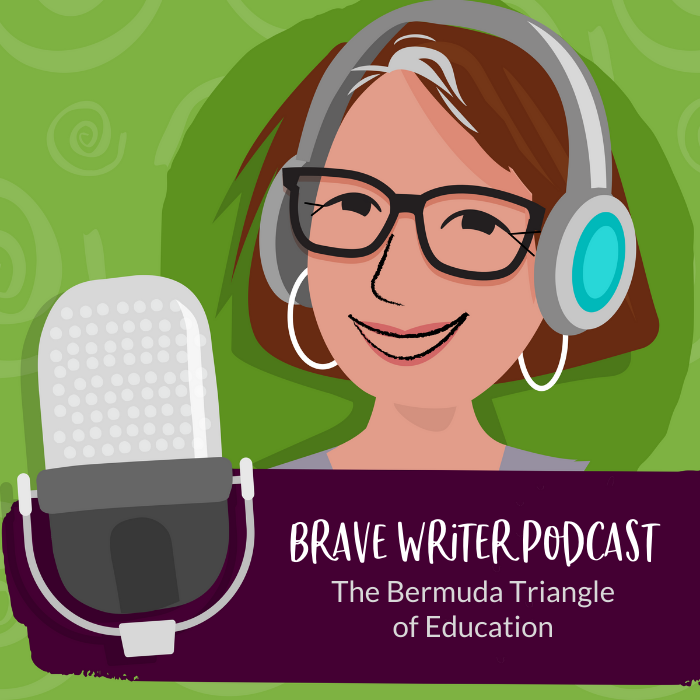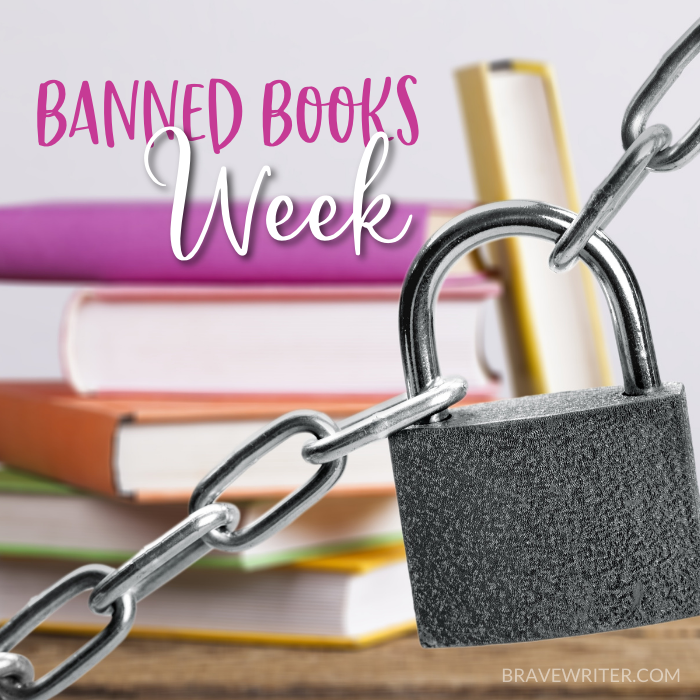
How old are you? Now write that many nice things about yourself.
New to freewriting? Check out our online guide.

How old are you? Now write that many nice things about yourself.
New to freewriting? Check out our online guide.
Tags: Writing prompts
Posted in Friday Freewrite | Comments Off on Friday Freewrite: Nice Things

We’re excited to share our biggest update yet to our online writing class program:
If you’ve got teens who struggle with the volume of reading our classes require, we’ve got you!
An AUDIO feature will be available for a small fee in our classroom posts starting in the Winter/Spring semester.
Got a reluctant or challenged reader? A lot of classroom reading might have been a deterrent in the past.
Now you can upgrade the classroom experience so your students can LISTEN to the class assignments and readings instead. Or they may like doing a combination of reading and listening—an effective way to grow both skills.
Listening to audio while reading benefits:
More choices. More support. More ways to learn.
LISTEN to a sample of an Essay Prep: Dynamic Thinking recording on our class description page (scroll down).
NOTE: Audio available in select classes only. Voices may vary according to class.
Posted in Online Classes | Comments Off on Class Feature: Audio!

Teaching children a life skill is harder than it seems. As a parent, this can be extremely frustrating. The positives, though, are worth the trouble. Consider this, the sooner our kids know how to help around the house, the sooner they can help us around the house!
More importantly, and beyond our own benefit, ensuring they’ve got the most recent software update on self-sustaining skills like tying their shoes and reading a clock provide the daily boosts of confidence and personal growth that a child needs.
This comes down to one question we receive again and again when it comes to teaching children. It falls into something I call The Bermuda Triangle of Education. It’s a place where so many of us go wrong, and yet the principles to get out are actually quite simple.
There are three parts of this triangle. Our own desire to teach leads us to believe that we should already know how to teach. When a child fails to learn, we pull in the other two aspects of this triangle of doom. Children are smart: they feel the pressure and obligation that parents add to their teaching.
These three features: a desire to teach, thwarted by pressure and obligation, lead to the cranky learning experience so many of us are trying to overcome in our homes!
Listen to hear exactly where we’re going wrong and how we can approach teaching tasks and tools in a way that helps kids want to use them.
Learning and Loving
Think about the energy you bring to teaching – is it joy and excitement or pressure, shame, and anxiety? Kids are smarter than we give them credit for. They pick up any emotional undertones present, even if they’re not quite sure what to do with the information.
Don’t force it. Set aside time where both you and your child can be emotionally and physically invested in whatever the learning challenge, and keep your mindset in the right place – supporting them with love, patience, and variety.
The Back-End Commitment
For instance, if you show a child how to make their bed, they know you’ll expect them to start making the bed themselves every day. It might seem like a simple task to you, but the looming responsibility can feel like a lot for a child to take on. On top of that, they may feel pressure to showcase themselves as having learned the skill well to be worthy of your invaluable praise. The pressure and obligation can lead to a meltdown of willingness.
The Worry
You don’t want to turn up the heat of pressure and obligation, which is not a good environment for learning. For parents and caregivers, the key is to not give up when a skill doesn’t sink in right away. Remain focused and calm. Just because the child gets something one day doesn’t mean that it’s going to come naturally every single time they try it. Using a new skill is reliant on a lot of factors, and some days will come easier than others. The last thing you want is for your child to sense you’re worried or disappointed in them during the learning process.
What if we change our approach to one of play? No obligation, no pressure. Tune in for additional ideas for how to take a skill and nurture it rather than require it.
Listen to the episode for a full rundown of the pitfalls I see parents stumble into time and time again, and some of the best tactics for instilling a skill, as education, alongside a true sense of joy or pride in using it.
Posted in Podcasts | Comments Off on Podcast: The Bermuda Triangle of Education

Banned Books Week is an annual opportunity to celebrate the freedom to read. This special week shines a bright light on attempts—both recent and long ago—to censor books.
You might wonder, why would I want to pick up a banned book? And why, especially, would I want to share a banned book with my kids—and use it to study grammar, punctuation, and literary devices?
We hear you. And we have thoughts to share.
The American Library Association (ALA) makes a distinction between challenged and banned books:
“A challenge is an attempt to remove or restrict materials, based upon the objections of a person or group. A banning is the removal of those materials. Challenges do not simply involve a person expressing a point of view; rather, they are an attempt to remove material from the curriculum or library, thereby restricting the access of others. As such, they are a threat to freedom of speech and choice.”
Raising awareness of banned books helps ensure readers an ongoing opportunity to engage freely with diverse ideas and perspectives. At Brave Writer we celebrate that intellectual freedom as a means to promote new empathy and deeper understanding. This is why we make it a point to carry mechanics and literature singles for challenged or banned books!
At first, it might feel counterintuitive to seek out banned titles. After all, we aim to give our kids the best literary experiences we can, poring over carefully curated reading lists to find those “must-read gems” all the experts are raving about. How surprising it is to discover then that the treasures we seek work overtime, often appearing on both the “classics-you-can’t-afford-to-miss-lists” and the banned books lists too!
To name just a few, think:
If you’ve been with Brave Writer for a while, you may recognize that these titles are featured in a Dart, Arrow, or Boomerang. These books were selected for our language arts program because of their:
Presented at the right time, in the right context, these tales have the power to enrich family culture and conversation in wildly meaningful ways. Let’s explore how!
Books get banned for a wide range of reasons, but one element these titles usually share is authors with a willingness to take on the hard stuff. Banned books don’t shy away from the subjects kids are thinking about. Relatable stories of familial challenges, peer pressure, bullying, prejudice, loss, and grief gift our kids with road maps to hold onto when they’re feeling lost or overwhelmed. Books can make it easier to digest and process the feelings these topics give life to. And have you noticed that relatable books turn kids into readers?
Many books deemed “controversial” are great teachers of empathy and self-awareness. Education reformer Charlotte Mason taught that books give children a chance to learn about the wider world. Educator Emily Style took this thinking a step further coining the expression “books as mirrors and windows.”
Do you think the topics covered in Charlotte’s Web are too sad for children?
Who could this story help?
Do these themes belong in a kids’ book?
Why? Why not?
Think how delicious this conversation might be served up with cookies and milk! Substantive stories stir up controversy, and controversy is fodder for juicy conversations. Open-ended discussion of questions like the examples above helps develop critical thinking skills. If given opportunities to engage regularly in rich conversation, kids will grow the skills they need to thoughtfully discern and distill their beliefs and values.
You Get to Decide
Books that stretch our thinking, make us evaluate and consider the world from a series of vantage points, are doing their job. How fortunate we are to have access to them.
Not every banned book deserves a place on your bookshelf, of course. You get to decide what deserves a place in your collection. But that’s the whole point. You decide.
Dart Titles
Arrow Titles
Boomerang Titles
Slingshot Titles
And that’s just the tip of the iceberg! See if you can spot other banned books on our Literature Singles list. There are more!
Posted in Living Literature | Comments Off on Banned Books Week

An autumn leaf expected to fall gently to the ground but instead got stuck in a spider’s web. Write the conversation between the leaf and the spider, who had planned to catch dinner not part of a tree.*
*Note: Apparently jumping spiders do eat leaves, but our spider is not that kind of arachnid.
New to freewriting? Check out our online guide.
Tags: Writing prompts
Posted in Friday Freewrite | Comments Off on Friday Freewrite: Leaf and Spider

I’m a homeschooling alum -17 years, five kids. Now I run Brave Writer, the online writing and language arts program for families. More >>
IMPORTANT: Please read our Privacy Policy.















